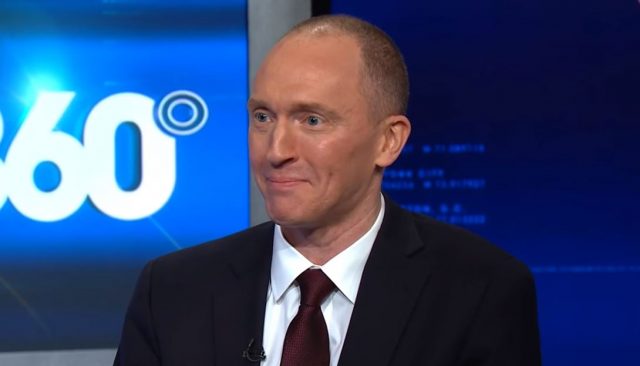 Washington Republicans have been pounding their fists of late regarding a memo dealing with Justice Department surveillance. A recent New York Times report focused on criticism of Deputy Attorney General Rod Rosenstein and his decision to continue surveillance of former Trump campaign adviser Carter Page. The GOP is claiming that the FISA warrant was based primarily on unverified intel from a Russian dossier compiled by Democrat-funded research. As the narrative goes, it’s all part of an anti-Trump, pro-Democrat agenda within the FBI and the DOJ as a whole, and that by continuing the surveillance, Rosenstein is part of it.
Washington Republicans have been pounding their fists of late regarding a memo dealing with Justice Department surveillance. A recent New York Times report focused on criticism of Deputy Attorney General Rod Rosenstein and his decision to continue surveillance of former Trump campaign adviser Carter Page. The GOP is claiming that the FISA warrant was based primarily on unverified intel from a Russian dossier compiled by Democrat-funded research. As the narrative goes, it’s all part of an anti-Trump, pro-Democrat agenda within the FBI and the DOJ as a whole, and that by continuing the surveillance, Rosenstein is part of it.
Here’s the problem: even you want to believe that there’s a vast conspiracy within the Justice Department, surveillance of Carter Page shouldn’t be your key piece of evidence. See, here’s two things we know about Carter Page: 1) he likes to go to Russia, and 2) he likes to talk. A lot.
See, the FBI had their eyes on Page back in 2013, when they learned that a Russian spy was trying to recruit him. That alone should tell you something. Take that, plus the fact that Page took a trip to Russia in July 2016 when he was associated with Trump’s campaign, there’s your reason for surveillance. You have a guy who talks way too much who is known to have spoken to a Russian spy and was going back to Russia. You don’t need a dossier or anything else regarding Trump’s campaign.
Another reason why this is not a smoking gun for an anti-Trump conspiracy is that even if Page was talking to Russia, that itself doesn’t even mean that the Trump campaign knew about it or that they did anything wrong. There is plenty of reason to believe that while Page was involved in the campaign, he wasn’t quite as important as he made himself out to be. Page had claimed to have attended meetings with Donald Trump during the campaign, only to later admit that he was really referring to rallies with thousands of people. His excuse? He was using “meeting” in the Russian sense of the word, which applies to larger gatherings. Oh, did I mention when he made the claim about the meetings, it was during a speech he gave in Russia?
Page also admitted during an October interview that he suggested going to Russia and the campaign basically told him he could go on his own if he wanted to. Based on reports of how campaign members denied knowing him at all, his own refusal to discuss what he actually did for them or whom he worked with, and the campaign’s eventual demand that he stop calling himself an adviser, it seems likely that Page asked someone about going to Russia, and they told him, “Do whatever the hell you want,” just get him to go away.
Did the Trump campaign commit any crimes related to their ties to Russia? I don’t know. Is there a political agenda within the Justice Department against President Trump, with Rosenstein involved? I don’t know. What I do know is that it’s highly unlikely Carter Page is the key to either one.
Ronn Blitzer is the Senior Editor of Law&Crime. Follow him on Twitter @RonnBlitzer.
[Image via CNN screengrab]
This is an opinion piece. The views expressed in this article are those of just the author.